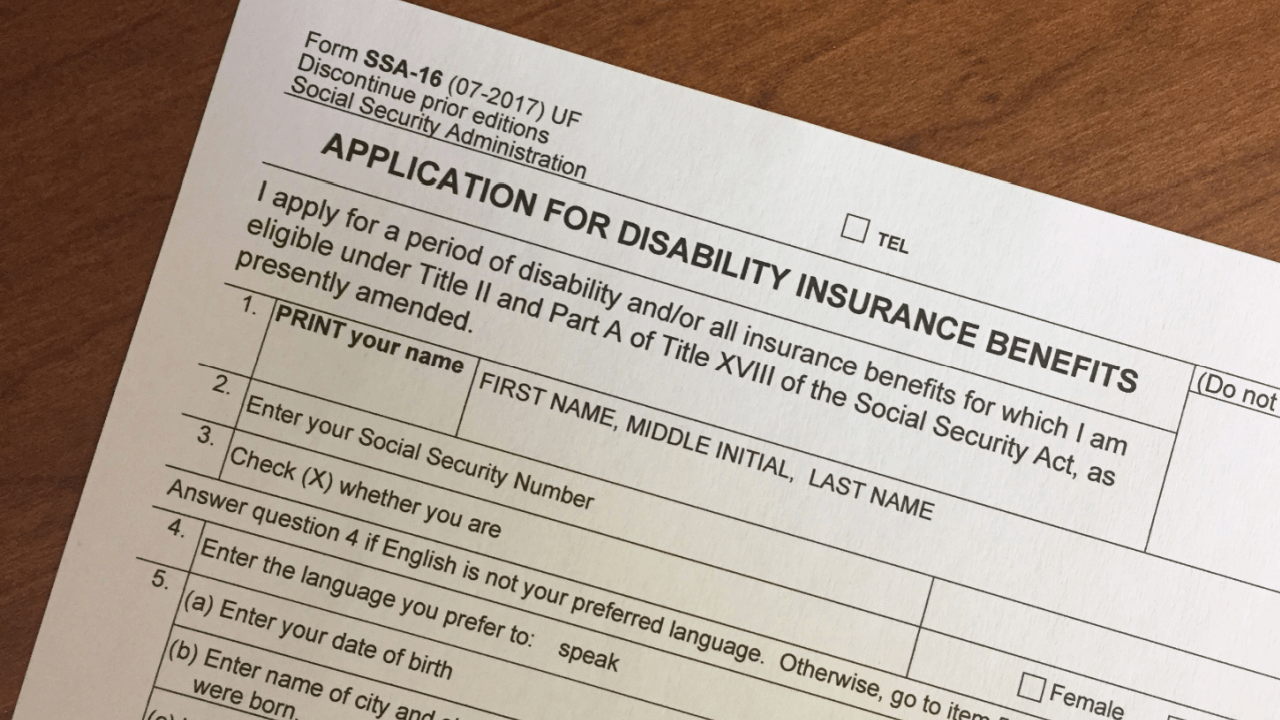
How Hard is it to Get SSDI? Your Complete 2025 Guide
Approval Barrier Insight: How Hard Is It to Get SSDI?
How hard is it to get SSDI? The reality is that obtaining Social Security Disability Insurance benefits can be extremely challenging due to strict eligibility standards, detailed documentation requirements, and a multi-step evaluation process. The process involves strict medical requirements, extensive documentation, and multiple evaluation stages that can take months or even years to complete.
The Social Security Administration receives millions of SSDI applications annually, yet the majority face initial denial. Understanding why SSDI claims get rejected and how to prepare a complete application can help applicants better navigate the process. This guide reveals the key factors that determine success and provides actionable strategies to navigate the complex application process effectively.
Eligibility Obstacle Breakdown: Why Getting SSDI Is So Difficult
The primary challenge in securing SSDI benefits lies in meeting the Social Security Administration’s strict definition of disability. To qualify, applicants must prove their condition prevents them from performing any substantial gainful activity for at least 12 months. This standard is notably more restrictive than other disability programs.
Medical evidence requirements are extensive and specific. The SSA requires detailed documentation from treating physicians, diagnostic test results, treatment histories, and functional capacity evaluations. Many initial applications fail because applicants submit incomplete medical records or lack sufficient evidence to support their disability claims.
The five-step sequential evaluation process adds another layer of complexity. SSA evaluators assess whether you’re working, if your condition is severe, if it meets listed impairments, if you can perform past work, and if you can do other jobs. Failing any step results in denial, making thorough preparation essential.
First Attempt Reality: How Hard Is It, Really, to Get SSDI Initially
Getting SSDI approved on the first attempt can be challenging, and outcomes may vary based on individual circumstances, medical evidence, and how the application is prepared.
Geographic location also influences approval difficulty. Some states have notably lower approval rates due to stricter evaluation standards or higher application volumes. Understanding your local Social Security office’s patterns can help set realistic expectations for your case timeline.
Professional representation dramatically improves first-time approval odds. Some applicants choose to work with disability attorneys or advocates who are familiar with SSA procedures and documentation requirements. These professionals understand SSA requirements and can present your case more effectively.
Success Strategy Guide: How to Improve Your SSDI Approval Odds
Comprehensive medical documentation is crucial for SSDI success. Schedule regular appointments with specialists who understand your condition and can provide detailed functional assessments. Request copies of all medical records and ensure they clearly describe how your symptoms limit daily activities and work capacity.
Timing your application strategically can impact approval likelihood. Applying in a timely manner may be important, as SSDI rules include limitations on how far benefits may apply retroactively. Delays can also affect the availability of medical evidence needed to support an application.
Maintain consistent treatment throughout the application process. Gaps in medical care suggest your condition isn’t severe enough to prevent work. Follow all prescribed treatments and document any side effects that affect your functioning ability.
Process Timeline Map: Getting SSDI Approved and What Comes Next
The SSDI process can involve multiple stages, each of which may take several months depending on case complexity and administrative workload. Appeals, including hearings, often require additional preparation and extended timelines.
Understanding appeal deadlines is critical. You have 60 days from receiving a denial notice to file your appeal. Missing this deadline means starting the entire process over, losing valuable time and potential retroactive benefits.
Prepare thoroughly for each stage. Initial applications require different strategies than reconsideration reviews or hearings. Working with experienced professionals who understand these nuances can significantly improve your success rate at each level.
Realistic Expectation Check: Final Thoughts on Getting SSDI
How hard is it to get SSDI? While challenging, understanding the process and preparing thoroughly can help applicants approach the system more effectively. Success requires patience, persistence, and proper documentation. Many applicants who initially face denial ultimately receive benefits through the appeals process.
Action Plan Reminder: Take the Next Step on Your SSDI Application
The SSDI process can feel overwhelming. Gathering medical documentation early and seeking legal information may help you better understand your options and next steps. How hard is it to get SSDI? With proper preparation and guidance, the process becomes much more manageable.
If you’re seeking professional legal guidance, visit SocialSecurity to connect with qualified attorneys who specialize in SSDI cases. Some applicants seek assistance from attorneys or advocates who focus on SSDI matters. Legal professionals can help explain procedural requirements, assist with documentation, and guide applicants through appeals if needed.
Frequently Asked Questions
1. What percentage of SSDI claims are approved?
Approximately 35% of initial SSDI applications receive approval, while denial rates for first-time applicants remain around 65%. However, approval rates increase significantly through the appeals process.
2. How long does the SSDI approval process take?
The initial SSDI decision typically takes 3-5 months. If appeals are necessary, the complete process can extend 12-24 months, depending on your case complexity and local processing times.
3. Can I work while applying for SSDI?
Limited work activity is permitted during SSDI application, but earnings cannot exceed substantial gainful activity levels ($1,470 monthly for non-blind applicants in 2025). Working above these limits may disqualify your application.
4. What medical conditions qualify for SSDI?
SSDI covers any medical condition that prevents substantial gainful activity for 12+ months. Common qualifying conditions include musculoskeletal disorders, mental health conditions, cardiovascular disease, cancer, and neurological disorders.
5. Should I hire a lawyer for my SSDI application?
While not required, disability attorneys significantly improve approval odds and typically work on contingency fees. They understand SSA requirements and can present your case more effectively than self-representation.
Key Takeaways
- Initial SSDI approval rates are approximately 35%, making thorough preparation essential for success.
- Medical documentation quality is the primary factor determining SSDI application outcomes.
- Professional representation increases approval chances by 15-20% compared to self-represented cases.
- The appeals process often yields better results than initial applications, with hearing approval rates reaching 60-70%.
- Consistent medical treatment and proper timing of your application significantly impact approval likelihood.


